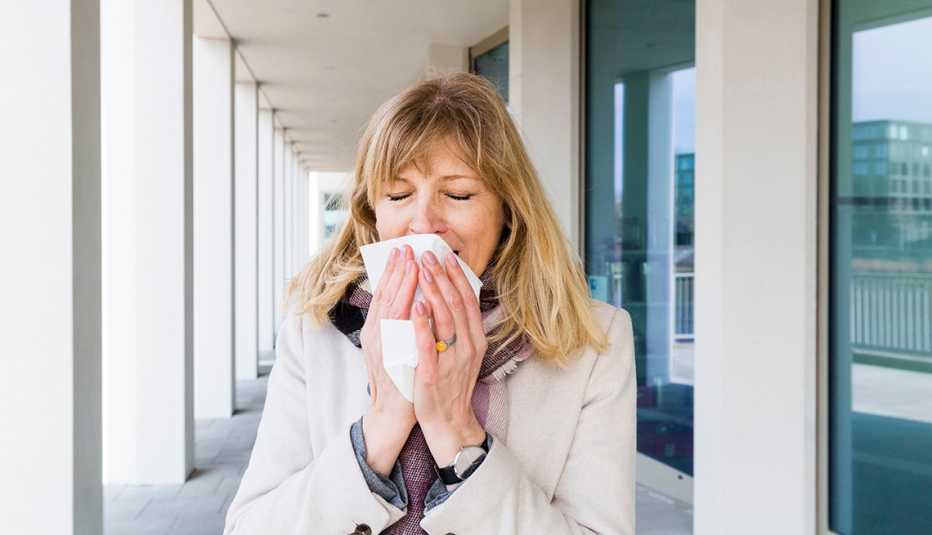AARP Hearing Center
Pollen counts are rising and so are allergy symptoms.
But before you reach for an over-the-counter product to ease the sneezing, itching and runny nose, know this: Some allergy medications are more effective than others — and some can be downright dangerous for older adults.
“Medications that were fine for you to take when you were younger can be more problematic as you age,” explains Joshua Niznik, an assistant professor of medicine at the University of North Carolina School of Medicine and Eshelman School of Pharmacy in Chapel Hill, North Carolina. “More of these medications pass through the blood-brain barrier and it’s harder for you to eliminate them from your body as you get older. As a result, you’re more prone to side effects.”
Here’s how to handle your hay fever without unwanted side effects.
Medications to avoid
Diphenhydramine (Benadryl). The antihistamine diphenhydramine commonly causes sleepiness, but it can also usher in a slew of other symptoms in older adults, like anxiety, confusion, blurred vision, constipation and difficulty urinating.
“All of these together raise the risk of falls, which is already a concern for older adults,” Niznik says. In 2019, falls sent roughly 3 million adults 65 and older to emergency rooms and caused more than 34,000 deaths, according to the Centers for Disease Control and Prevention (CDC).
Diphenhydramine is also part of a class of medications known as anticholinergics, which have been linked to dementia, according to a 2019 study published in JAMA Internal Medicine. Researchers found that longer-term use of anticholinergics — which block acetylcholine, a chemical messenger in the brain involved in learning and memory — was associated with roughly a 50 percent greater risk for dementia in adults.
It’s important to know that diphenhydramine is found in a number of combination medications that relieve allergy and cold-like symptoms (Sudafed PE Sinus Congestion Day + Night and Theraflu Nighttime Severe Cold & Cough, for example), so be sure to read the label carefully when shopping for relief.
Decongestants. Stuffy nose? Beware of decongestants, including phenylephrine or pseudoephedrine, which are often found in products such as Sudafed. This is especially true if you have high blood pressure or cardiovascular disease.








































































